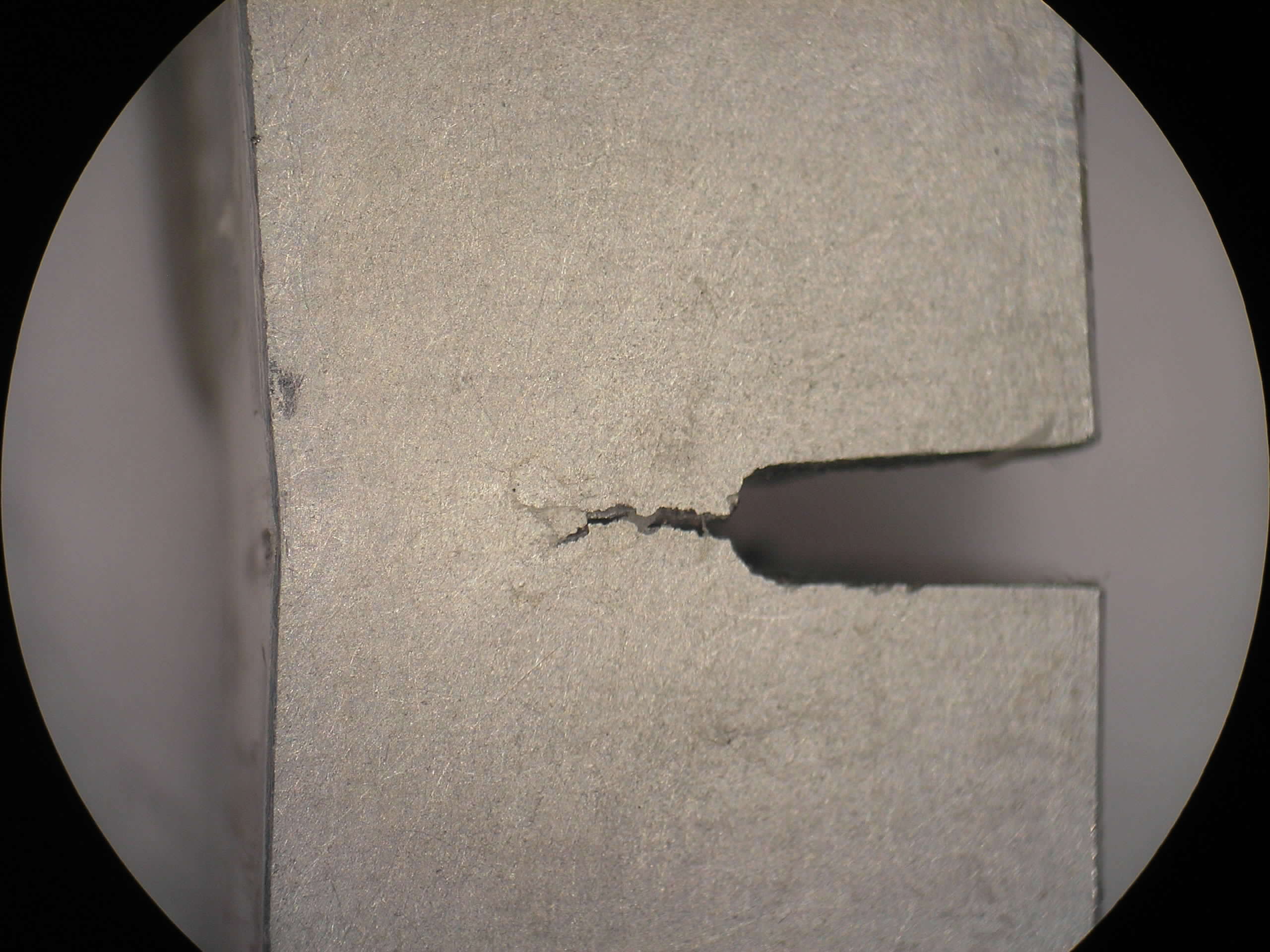Fracture Mechanics & Failure Analysis
Fracture mechanics and failure analysis are critical disciplines that focus on understanding how materials and structures fail under various loading conditions. This knowledge is essential for the design, testing, and quality control of products in industries such as aerospace, automotive, construction, and manufacturing. At our laboratory, we employ advanced techniques to conduct comprehensive fracture mechanics and failure analyses, ensuring precise diagnosis and root cause identification.
The analysis begins with a thorough examination of the failed component or structure, including visual inspection, non-destructive testing (NDT), and surface characterization using scanning electron microscopy (SEM). This initial assessment helps us identify potential areas of concern before proceeding to more detailed tests. For instance, we can use finite element analysis (FEA) to simulate stress distributions and predict failure modes under specific loading conditions.
Our laboratory is equipped with state-of-the-art equipment that supports a wide range of fracture mechanics tests, such as three-point bending, four-point bending, and tensile testing. We also offer specialized methods like crack growth rate (CGR) measurements using linear elastic fracture mechanics (LEFM), which are critical for understanding how cracks propagate in materials under cyclic loading.
For failure analysis, we use advanced techniques such as scanning acoustic microscopy (SAM) to detect internal defects and flaws that may have contributed to the failure. Additionally, we can perform detailed microhardness testing using Vickers or Knoop indenters to assess localized mechanical properties around the site of failure. This combination of methods ensures a comprehensive understanding of the failure mechanism.
Our laboratory follows internationally recognized standards such as ASTM E399 and ISO 17853, which provide guidelines for conducting fracture mechanics tests and interpreting results. These standards ensure consistency and reliability in our test procedures, allowing us to deliver accurate and repeatable results that are trusted by industry leaders.
For complex cases, we may use advanced computational tools like Abaqus or ANSYS to model the failure process and validate experimental findings. This approach allows us to simulate real-world loading scenarios and predict how similar materials or structures might behave under different conditions. Our team of experienced engineers and technicians is skilled in using these tools to provide valuable insights into the root cause of failures.
In summary, fracture mechanics and failure analysis are essential for ensuring product safety and reliability. By leveraging our expertise and advanced equipment, we can help you identify and address potential weaknesses in your materials or structures before they lead to catastrophic failures. Our approach is not only focused on identifying the cause of a specific failure but also on preventing future occurrences by providing actionable recommendations based on our findings.
Why It Matters
The significance of fracture mechanics and failure analysis cannot be overstated, especially in industries where product safety and reliability are paramount. By understanding how materials fail under stress, we can improve the design and manufacturing processes, leading to safer products and reduced risk of costly accidents or failures.
One key reason why this service is crucial is its role in preventing catastrophic failures that could lead to severe consequences such as structural collapse or equipment malfunction. In industries like aerospace and construction, where materials are exposed to extreme conditions, the ability to predict and prevent failure can save lives and millions of dollars in damages.
Another important aspect is compliance with regulatory standards and industry best practices. Many sectors, including aviation and automotive manufacturing, have strict regulations regarding material integrity and structural reliability. Conducting regular fracture mechanics tests ensures that products meet these requirements, avoiding potential legal or safety issues.
Moreover, failure analysis can provide valuable insights into the performance of materials under real-world conditions. This information is crucial for continuous improvement in product design and manufacturing processes. By identifying areas where materials or structures are prone to failure, we can work with engineers and designers to develop more robust solutions that withstand harsh environments.
In addition to preventing failures, this service also plays a vital role in maintaining brand reputation and customer trust. Companies that invest in quality assurance and safety measures often gain a competitive advantage by demonstrating their commitment to excellence. By partnering with us for fracture mechanics and failure analysis, you can ensure that your products meet the highest standards of reliability and performance.
Industry Applications
- Aerospace: Ensuring structural integrity in aircraft components.
- Automotive: Evaluating safety features and component durability.
- Bridges & Infrastructure: Assessing long-term performance of construction materials.
- Medical Devices: Guaranteeing the reliability of implanted devices.
- Electronic Manufacturing: Preventing failures in circuit boards and components.
International Acceptance and Recognition
The importance of fracture mechanics and failure analysis is widely recognized across the globe. Internationally accepted standards such as ASTM E399, ISO 17853, and EN 14608 provide a framework for conducting these tests and interpreting results. These standards ensure that our laboratory's procedures are consistent with global best practices.
Our laboratory adheres to strict quality control measures to maintain the highest level of accuracy and reliability in our test results. We follow international guidelines for specimen preparation, test setup, data collection, and analysis. This commitment to international standards ensures that our findings are credible and widely accepted by regulatory bodies and industry peers.
The widespread acceptance of these methods is reflected in their use by leading organizations worldwide. For example, the aviation industry relies on fracture mechanics tests to ensure the safety of aircraft components, while construction companies use failure analysis to assess the durability of materials used in large-scale projects. The automotive sector also benefits from these techniques to improve vehicle design and enhance overall performance.
By aligning our practices with internationally recognized standards, we contribute to a global effort to promote product safety and reliability. Our laboratory's expertise and adherence to these standards position us as trusted partners in the quest for excellence in materials science and engineering.





